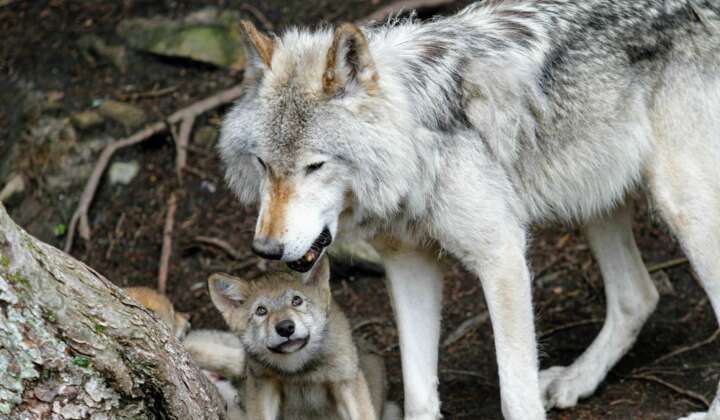Senckenberg
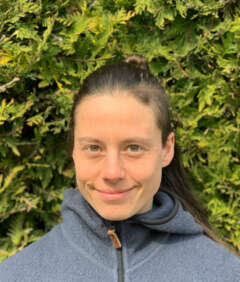
Dr. Lisa Lehnen
Koordination, Umsetzung und Ansprechpartnerin
My main research interests are human relationships with, and the conservation of nature in general and wildlife in particular. For my PhD at Greifswald University, I investigated genetic aspects of lesser horseshoe bat recolonization in Central Germany. During the associated fieldwork and interaction with roost managers and other stakeholders, I discovered my interest for the human dimensions of wildlife conservation. As a postdoc at the Senckenberg Biodiversity and Climate Research Centre, I am currently implementing two projects addressing socio-psychological aspects of wolf conservation, with a strong focus on the role of factual knowledge. (You are invited to test your own knowledge about wolves in my Leibniz quiz.) Inspired by this work and my integrative nature education training (Wildnispädagogik), I have also developed a keen interest in human-nature relationships in general and their ramifications for nature conservation and people’s quality of life.
Peer-reviewed publications
Lehnen, L., Arbieu, U., Böhning-Gaese, K., Díaz, S., Glikman, J.A., Mueller, T. (2022). Rethinking individual relationships with entities of nature. People and Nature, 3(7). https://doi.org/10.1002/pan3.10296
Lehnen, L., Mueller, T., Reinhardt, I., Kaczensky, P., & Arbieu, U. (2021). Gesellschaftliche Einstellungen zur Rückkehr des Wolfs nach Deutschland. Natur und Landschaft, Schwerpunktausgabe: Luchs und Wolf zurück in Deutschland, 27–33. https://www.natur-und-landschaft.de/de/news/gesellschaftliche-einstellungen-zur-ruckkehr-des-wolfs-nach-deutschland-1617
de Boon, A., Sandström, C., Arbieu, U., Hansen, I., Lehnen, L., Marino, A., Pohja-Mykrä, M., Risvoll, C., Strand, G.-H., & Rønningen, K. (2021). Governing dual objectives within single policy mixes: An empirical analysis of large carnivore policies in six European countries. Journal of Environmental Policy & Planning, 23(4), 399–413. https://doi.org/10.1080/1523908X.2020.1841614
Lehnen, L.*, Jan, P.-L., Besnard, A.-L., Fourcy, D., Kerth, G., Biedermann, M., Nyssen, P., Schorcht, W., Petit, E. J., & Puechmaille, S. J. (2021). Genetic diversity in a long-lived mammal is explained by the past’s demographic shadow and current connectivity. Molecular Ecology, 30(20), 5048–5063. https://doi.org/10.1111/mec.16123 (*Lehnen & Jan equally contributed to this work as first authors. Petit & Puechmaille equally contributed as senior authors.)
Jan, P.-L., Lehnen, L.*, Besnard, A.-L., Kerth, G., Biedermann, M., Schorcht, W., Petit, E. J., Le Gouar, P., Puechmaille, S. J. (2019). Range expansion is associated with increased survival and fecundity in a long-lived bat species. Proceedings of the Royal Society B: Biological Sciences, 286(1906), 20190384. https://doi.org/10.1098/rspb.2019.0384 (Lehnen & Jan equally contributed to this work as first authors. Petit, Le Gouar, and Puechmaille equally contributed as senior authors.)
Lehnen, L., Schorcht, W., Karst, I., Biedermann, M., Kerth, G., & Puechmaille, S. J. (2018). Using Approximate Bayesian Computation to infer sex ratios from acoustic data. PLOS ONE, 13(6), e0199428. https://doi.org/10.1371/journal.pone.0199428
Zarzoso‐Lacoste, D.*, Jan, P., Lehnen, L., Girard, T., Besnard, A., Puechmaille, S. J., & Petit, E. J. (2018). Combining noninvasive genetics and a new mammalian sex‐linked marker provides new tools to investigate population size, structure and individual behaviour: An application to bats. Molecular Ecology Resources, 18(2), 217–228. https://doi.org/10.1111/1755-0998.12727 (*Zarzoso-Lacoste & Jan equally contributed to this work as first authors.)
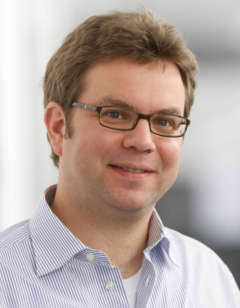
SGN
Prof. Dr. Thomas Müller
Projektleitung
Research interests
From basic everyday foraging behaviors to extraordinary long-distance migrations: animal movements are important for species survival, ecosystem functioning, and biodiversity. My research bridges across theoretical and applied aspects of movement ecology, from the behavioral underpinnings and social interactions to ecosystem functions and macro-ecological patterns. I am particular interested in studying the exceptional challenges that an increasing human footprint poses for movements of wildlife, which ultimately leads to the question of human wildlife coexistence. To that end, I pursue an integrated social-ecological research program to better understand human wildlife interactions and develop sustainable conservation recommendations.
External links
List of publications on Google Scholar
Selected publications
Tucker, M. , … , and T.Mueller. 2018. Moving in the Anthropocene: Global reductions in terrestrial mammalian movements. Science, 359, 466-469.
Bracis C. and T. Mueller. 2017. Memory, not just perception, plays an important role in terrestrial mammalian migration. Proceedings B, 284, 20170449.
Teitelbaum C.S., S. Converse, W. Fagan, K. Böhning-Gaese, R. B. O’Hara, A. Lacy, and T. Mueller. 2016. Experience drives innovation of new migration patterns of whooping cranes in response to global change. Nature Communications, 7,12793.
Teitelbaum C.S., W.F. Fagan, C.H. Fleming, G. Dressler, J.M. Calabrese, P. Leimgruber, and T. Mueller. 2015. How far to go? Determinants of migration distance in land mammals. Ecology Letters, 18, 545–552.
Mueller T., R. B. O’Hara, S. J. Converse, R.P. Urbanek, W. F. Fagan. 2013. Social Learning of Migratory Performance. Science, 341, 999-1002.
featured among others in:
BBC
NPR
National Geographic
Deutschlandfunk
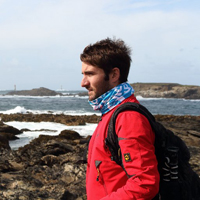
SGN
Dr. Ugo Arbieu
Postdoctoral Researcher, Member of Research Group 'Movement Ecology'
Research interests
The conservation of large mammals, and large carnivores in particular, requires integrative perspectives ranging from genetics, population and movement ecology to understand their ecology, as well as psychology, social and political sciences to address potential conflicts with human societies. Research on social-ecological systems provides frameworks to bring these formerly separate scientific domains together and find solutions for human-wildlife coexistence.
My DFG-funded PhD project with Prof. K. Böhning-Gaese focused on wildlife tourism as a cultural ecosystem service, with a specific emphasis on large mammal diversity in four protected areas of Southern Africa (Etosha National Park, Chobe National Park, Kruger National Park and Hluhluwe-Imfolozi Park).
My current Senckenberg Postdoc project focusses on the social-ecological implications of the wolf (Canis lupus) returning to Germany. I use methods from ecological and social sciences to understand how wolves and people can coexist in human-dominated landscapes, and hopefully provide solutions for long-term and sustainable coexistence. The Leibniz-funded Transfer Project KnowWolf “Transfer of evidence-based and co-produced Knowledge for Human-Wolf Coexistence” (3 years), aims at reducing the gap between Science and Society on the topic of human-wolf coexistence, across borders.
Within the DFG-funded Kili-SES Research Unit, I investigate which biodiversity components underpin non-material nature’s contributions to people, by linking biodiversity data collected on Kilimanjaro’s southern slopes, and societal demands from multiple stakeholders groups.
Selected publications
Lehnen, L., Mueller, T., Reinhardt, I., Kaczensky, P. & Arbieu, U. (2021) Gesellschaftliche Einstellungen zur Rückkehr des Wolfs nach Deutschland. Natur und Landschaft, 1, 27-33.
de Boon, A., Sandström, C., Arbieu, U., Hansen, I., Lehnen, L., Marino, A., Pohja-Mykrä, M., Risvoll, C., Strand, G-H. & Rønningen, K. (2020) Governing dual objectives within single policy mixes: An empirical analysis of large carnivore policies in six European countries. Journal of Environmental Policy and Planning.
Methorst, J., Arbieu, U., Bonn, A., Böhning-Gaese, K. & Mueller, T. (2020) Non-material contributions of wildlife to human well-being: a systematic review. Environmental Research Letters, 15, 093005.
Arbieu, U., Albrecht, J., Mehring, M., Bunnefeld, N., Reinhardt, I. & Mueller, T. (2020) The positive experience of encountering wolves in the wild. Conservation Science and Practice, 2, e184.
Arbieu, U., Mehring, M., Bunnefeld, N., Reinhardt, I., Kaczensky, P., Nowak, C., Ansorge, H., Glikman, J., Böhning-Gaese, K. & Mueller, T. (2019) Attitudes towards returning wolves (Canis lupus) in Germany: Exposure, Information sources and Trust matter. Biological Conservation, 234, 202-210.
Arbieu, U., Grünewald, C., Martín-López, B., Schleuning, M. & Böhning-Gaese, K. (2018) Large mammal diversity matters for wildlife tourism in Southern African protected areas: insights for management. Ecosystem Services, 31, 481-490.
Balvanera, P., Calderón-Contreras, R., Castro, A.J., Felipe-Lucia, M.R., Geijzendorffer, I.R., Jacobs, S., Martín-López, B., Arbieu, U., Ifejika Speranza, C., Locatelli, B., Pérez Harguindeguy, N., Ruiz Mercado, I., Spierenburg, M.J., Vallet, A., Lynes, L. & Gillson, L. (2017) Interconnected place-based social–ecological research can inform global sustainability. Current Opinion in Environmental Sustainability, 29, 1-7.
Arbieu, U., Grünewald, C., Schleuning, M. & Böhning-Gaese, K. (2017) The importance of vegetation density for tourists’ wildlife viewing experience and satisfaction in African savannah ecosystems. PLoS ONE, e0185793.
Arbieu, U., Grünewald, C., Martín-López, B., Schleuning, M. & Böhning-Gaese, K. (2017) Mismatches between supply and demand in wildlife tourism: insights for assessing cultural ecosystem services. Ecological Indicators, 78, 282-291.
Weitere Teammitglieder

Prof. Dr. Katrin Böhning-Gaese
Professor, Director "Senckenberg Biodiversity and Climate Research Centre"
RESEARCH INTERESTS: Macroecology, community ecology and Social-Ecological Systems
- Influence of global change on animal communities in the tropics and in the temperate region
- Relationships between animal communities, ecosystem functions and ecosystem services
- Relationships between biodiversity and human well-being in Social-Ecological Systems
TEACHING: Courses at Goethe University Frankfurt in the MSc Ecology and Evolution and in the BSc Biology
MSc Ecology and Evolution and MSc Environmental Sciences: module „Community ecology, Makroökologie und Naturschutz“
- Content: The module includes an introductory lecture, seminars on current scientific publications, and computer and field practicals. It gives an overview about theory, statistical methods and applications of community ecology and macroecology, as well as consequences for regional and global conservation prioritisation. The module includes an ornithological fieldwork practical outside Frankfurt (duration 1 week).
- Contact: Susanne Fritz, Phone: +49 (0)69 7542 1803 E-Mail: susanne.fritz@senckenberg.de
BSc Biology: specialisation module „Ökologie der Tiere“ (animal ecology) – part „Makroökologie – Einfluss des Klimawandels auf Artverbreitungen“ (macroecology – influence of climate change on species distributions)
- Content: In our part of the module we investigate the potential effects of climate change on the distributions of different European bird species. We use species distribution models to project potential distributions of birds in dependency of climate scenarios for the end of the 21st century.
- Contact: Thomas Müller, Phone: +49 (0)69 7542 1889 E-Mail: thomas.mueller@senckenberg.de
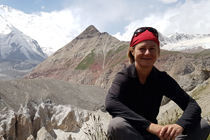
SGN
Ilka Reinhardt
Ph.D. Student, Member of Research Group 'Movement Ecology'
Research interests
I have a strong interest in wildlife biology, behavioral ecology and conservation of large mammals and especially of large carnivores. I am based at the LUPUS Institute – the German Institute for Wolf monitoring and research which I co-founded together with my colleague Gesa Kluth. Since 2002 I am scientifically following and documenting the recovery of wolves in Germany. With this PhD study at the movement ecology group in Frankfurt I aim to give a profound scientific description of the population recovery, especially on the re-colonization process of wolves in Germany, the dispersal and pack formation of this new population, and on the territory size, movement and activity of wolves in the highly human dominated landscape of Germany. The study will hopefully contribute to a better understanding of this controversial carnivore. I am a member of the Large Carnivore Initiative for Europe (www.lcie.org), a species specialist group of the IUCN.
External Links
Ilka Reinhardt at ResearchGate (incl. full list of publications)
Selected publications
Lesnjak, I., Heckmann, I., Heitlinger, E., Szentiks, C. A., Jarausch, A., Reinhardt, I., Kluth, G., Hofer, H. and O. Krone (2017): Population expansion and individual age effect endoparasite richness and diversity in a recolonizing large carnivore population. Scientific reports 7:41730. doi: 10.1038/srep41730
Reinhardt, I., Kluth, G., Nowak, S. & R. Myslajek (2015): Standards for the monitoring of the Central European wolf population in Germany and Poland. BfN-Skripten 398.
Boitani, L., F. Alvarez, O. Anders, H. Andren, E. Avanzinelli, V. Balys, J. C. Blanco, U. Breitenmoser, G. Chapron, P. Ciucci, A. Dutsov, C. Groff, D. Huber, O. Ionescu, F. Knauer, I. Kojola, J. Kubala, M. Kutal, J. Linnell, A. Majic, P. Mannil, R. Manz, F. Marucco, D. Melovski, A. Molinari, H. Norberg, S. Nowak, J. Ozolins, S. Palazon, H. Potocnik, P.-Y. Quenette, I. Reinhardt, R. Rigg, N. Selva, A. Sergiel, M. Shkvyria, J. Swenson, A. Trajce, M. Von Arx, M. Wolfl, U. Wotschikowsky, D. Zlatanova (2014): Key actions for Large Carnivore populations in Europe. Institute of Applied Ecology (Rome, Italy). Report to DG Environment, European Commission, Bruxelles. Contract no. 07.0307/2013/654446/SER/B3.
Chapron, G., Kaczensky, P., Linnell, J.D.C., von Arx, M., Huber, D., Andrén, H., López-Bao, J.V., Adamec, M., Álvares, F., Anders, O. Balciauskas, L., Balys, V., Bedo, P., Bego, F., Blanco, J.C., Breitenmoser, U., Brøseth, H., Bufka, L., Bunikyte, R., Ciucci, P., Dutsov, A., Engleder, T., Fuxjäger, C., Groff, C., Heltai, M., Holmala, K., Hoxha, B., Yorgos, I., Ionescu, O., Ivanov, G., Jeremić, J., Jerina, K., Kluth, G. Knauer, F., Kojola, I., Kos, I., Krofel, M., Kubala, J., Kunovac, S., Kusak, J., Kutal, M., Mannil, P., Manz, R., Marboutin, E., Marucco, F., Melovski, D., Mersini, K. Mertzanis, Y., Mysłajek, R.W., Nowak, S., Odden, j., Ozolins, J., Palomero, G., Paunovic, M., Persson, J., Potočnik, H., Quenette, P-Y., Rauer, G., Reinhardt, I., Rigg, R., Ryser, A., Salvatori, V., Skrbinšek, T., Skrbinšek-Majić, A., Stojanov, A., Swenson, J.E., Trajçe, A., Tzingarska-Sedefcheva, E., Váňa, M., Veeroja, R., Wölfl, M., Wölfl, S., Zimmermann, F., Zlatanova, D. & L. Boitani (2014): Recovery of large carnivores in Europe ’s modern human-dominated landscapes. Science. VOL 346 ISSUE 6216. S. 1517-1519. doi: 10.1126/science.1257553
Reinhardt, I., Rauer, J., Kluth, G., Kaczensky, P., Knauer, F. & U. Wotschikowsky (2012): Livestock protection methods applicable for Germany – a Country newly recolonized by wolves. Hystrix, It. J. Mamm. doi: 10.4404/hystrix-23.1-4555

SGN
Dr. Carsten Nowak
Fachgebietsleiter Naturschutzgenetik
Mich faszinieren die Möglichkeiten, die molekulare Methoden im Natur- und Artenschutz bieten. Naturschutz leidet oft an einer unbefriedigenden Datengrundlage, was das Ergreifen effizienter und zielgerichteter Schutzmaßnahmen erschwert. Genetische Methoden können zahlreiche bislang unbeantwortete Fragen klären, die etwa Inzucht und genetische Verarmung oder die Herkunft von Populationen betreffen. Des weiteren beschäftige ich mich seit längerer Zeit mit den Effekten anthropogener Umweltveränderungen auf die fundamentale Ebene der Biodiversität, die genetische Vielfalt innerhalb und zwischen Arten.
Interessensgebiete:
* Bedeutung von genetischer Diversität für die Überlebensfähigkeit von Populationen
* Artenschutzgenetik mit Schwerpunkt Invertebraten
* Einsatz genetischer Methoden im Monitoring (Neozoen, kryptische Arten)
* Interspezifische Hybridisierung bei Insekten
* Biologie und Ökologie aquatischer Neozoen
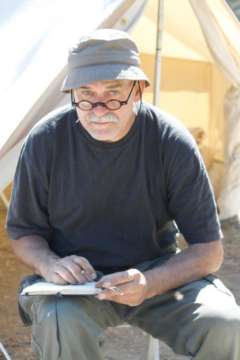
Hermann Ansorge
Prof. Dr. Dr. h.c. Hermann Ansorge
Ehrenamtlicher Mitarbeiter
Prof. Dr. Dr. h.c. Hermann Ansorge
Diplombiologe
Geboren 1955 in Halle/Saale
1975-1980: Studium der Biologie – Terrestrischen Ökologie an der Martin-Luther-Universität Halle/Wittenberg (Diplom zum Thema “Ökologische Untersuchungen an Singvögeln im Rauchschadensgebiet Dübener Heide”)
1980-1985: Wissenschaftlicher Assistent am Staatlichen Museum für Naturkunde Görlitz
1985: Berufung zum Kustos für Wirbeltiere am Staatlichen Museum für Naturkunde Görlitz
1990: Promotion am Fachbereich Biologie der Martin-Luther-Universität Halle/Wittenberg (“Zur intraspezifischen Variabilität des Rotfuchses Vulpes vulpes (Linné, 1758) in der Oberlausitz”)
1990-2005: Oberkonservator und Bereichsleiter Allgemeine Zoologie am Staatlichen Museum für Naturkunde Görlitz
Seit 1997: Lehrtätigkeit an der Hochschule Zittau/Görlitz im Studiengang „Ökologie und Umweltschutz“
2004: Lehrtätigkeit als Senior Fellow am Collegium Pontes 2004 Görlitz-Breslau-Prag (Population Biology)
Seit 2005: Honorarprofessor für Ökologie und Phylogenie der Wirbeltiere an der Hochschule Zittau/Görlitz
2005-2008: Hauptkonservator am Staatlichen Museum für Naturkunde Görlitz
2005-2008: Geschäftsführer der Deutschen Gesellschaft für Säugetierkunde e.V.
Seit 2008: Lehrtätigkeit am Internationalen Hochschulinstitut (IHI) Zittau im Studiengang „Biotechnologie und Angewandte Ökologie“
Seit 2009: Abteilungsleiter Zoologie am Senckenberg Museum für Naturkunde Görlitz
2009-2016: Vize-Präsident der Deutschen Gesellschaft für Säugetierkunde e.V.
Seit 2014: Lehrtätigkeit an der TU Dresden / IHI Zittau / Senckenberg Görlitz im Studiengang „Biodiversity and Collection Management“
2015: Ehrendoktor (Dr. h.c.) der National University of Mongolia Ulaanbaatar
Seit 2016: Professor für Spezielle Zoologie (Wirbeltiere) an der TU Dresden
Geländearbeit, Akademische Lehre und Forschungsaufenthalte vor allem in der Mongolei (1978, 1982, 2002 und seit 2005 jährlich Expeditionen, Summer Schools und Hochschulpartnerschaften)
Seit 2021: Ehrenamtlicher Mitarbeiter am Senckenberg Museum für Naturkunde Görlitz

Daniel Kummer PHOTOGRAPHY
Judith Jördens
Leitung Pressestelle & Social Media
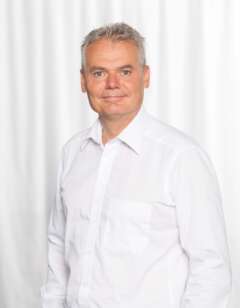
Dr. Sören Dürr
Ehm. Leitung Stab Kommunikation, Frankfurt/M.
Leibniz Institut für Wissensmedien
Arbeitsgruppe Wissenskonstruktion
Umsetzung und Ansprechpartner
Dr. Danny Flemming
Projektleitung
Dr. Joachim Kimmerle
Ko-Projektleitung
Prof. Dr. Ulrike Cress
Externe Kollaborationsparter*innen
Associate Prof. Dr. Petra Kaczensky
E-mail: petra.kaczensky@inn.no
Inland Norway University of Applied Sciences
Department of Forestry and Wildlife Management
Faculty of Applied Ecology, Agricultural Sciences and Biotechnology
Stor-Elvdal, Norwegen
Research Institute of Wildlife Ecology – FIWI
vetmeduni Wien, Österreich
Dr. Jenny Anne Glikman
Instituto de Estudios Sociales Avanzados (IESA-CSIC)
Córdoba, Spanien
Mitglied der IUCN Human-Wildlife Conflict Task Force
Prof. Dr. Nils Bunnefeld
Stirling, UK
Dr. Marion Mehring
Institut für sozial-ökologische Forschung
Frankfurt am Main

